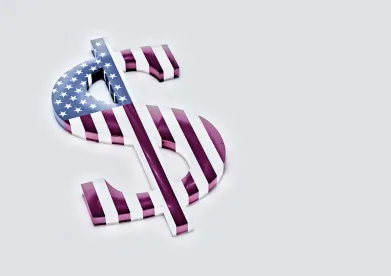Price gouging enforcement and litigation is front and center for company counsel and business managers nationwide. Our weekly round up highlights some of the most relevant news and information to our clients and friends.
Pennsylvania Pharmacy Enters into Assurance of Voluntary Compliance After Allegations of Price Gouging
On June 22, 2020, Pennsylvania Attorney General Josh Shapiro announced that his office entered into an Assurance of Voluntary Compliance (AVC) with a Lancaster pharmacy accused of price gouging. Pennsylvania’s price gouging statute prohibits a price increase of more than 20 percent. According to AG Shapiro, "Pennsylvanians need security and financial protection right now, especially when so many have lost wages and 30 percent are out of work. You have a right in Pennsylvania to purchase life-saving goods at reasonable prices in times like these." According to the AVC, the pharmacy was selling N95 masks at an unlawful price. Specifically, there were 353 instances in which the pharmacy charged a price greater than 20% the average price at which the N95 masks or similar products were obtained seven days prior to March 6, 2020. Under the AVC, the pharmacy is required to pay $1,765 in civil penalties, as well as $741.30 in restitution.
Maryland Consumers Are Seeing A “COVID Fee” at Some Local Businesses
In recent weeks, consumers have started seeing a surcharge at local businesses. For example, at one Montgomery County, Maryland restaurant, diners found a disclaimer stating "[t]o help offset restrictions on our business resulting from the COVID 19 crisis, a 4% surcharge has been added to all guest checks." The disclaimer also stated that “[i]f you would like this removed, please let us know.” According to the President and CEO of the Restaurant Association of Maryland, "[s]ome businesses and restaurants have started utilizing a 'COVID-19 Fee' as they navigate operations during this precarious time. . . We understand operators may need to consider how they absorb the additional costs necessary to reopen as many have been struggling and will continue to struggle to keep their doors open." Maryland’s price gouging law, which applies to, among others, food and beverages, prohibits price increases of more than 10%, though some of the COVID fees in excess of that amount may be permissible to the extent they reflect actual cost increases.
Arbitration and Price Gouging Claims
A motion to compel arbitration is the latest development in the California class action filed against Amazon for alleged price gouging. According to Amazon, consumers must individually arbitrate their claims. "Plaintiffs agreed to arbitration in 2015 and 2017, years before any alleged 'duress' associated with COVID-19 arose," Amazon said. The motion states that “Plaintiffs’ theory that COVID-19 effectively forced them to purchase these products from Amazon.com, rendering the arbitration agreement unconscionable, fails because unconscionability is determined at the time of contracting, and both Plaintiffs agreed to arbitration years before the COVID-19 crisis.” The class action alleges that Amazon illegally increased prices of items in high demand greater than 10 percent, in violation of California Penal Code Section 396(b).
Kentucky Judge Grants Preliminary Injunction Halting Price Gouging Investigation
On June 23, 2020, a Kentucky federal court granted a preliminary injunction to the Online Merchants Guild, halting investigations into alleged price gouging by Amazon. Kentucky’s price gouging statute prohibits a seller from increasing prices during the state of emergency by more than 10% with respect to certain goods or services. The preliminary injunction concerned a May 1, 2020, lawsuit filed by the Merchants Guild, challenging the application of the Kentucky statute as an unconstitutional application as it relates to retailers who use an online, interstate platform such as Amazon. The Merchants Guild argued that the Attorney General’s application of the price gouging statutes violated: (1) the dormant Commerce Clause; (2) the First Amendment; (3) the Due Process Clause; and (4) the Equal Protection Clause. Specifically, it argued that “certain of its members, by making goods available on Amazon, participate in the unitary interstate marketplace. And … by threatening the enforcement of the price gouging statutes against these members, the Attorney General is requiring the members to treat Kentucky prices as a national ceiling, or exit the national marketplace.” In response to these allegations, the court stated that “[i]f true, of course, this is the type of extraterritorial effect prohibited by the dormant Commerce Clause.” After addressing issues of standing and ripeness, the court found that the “Merchants Guild is likely to succeed in showing that the practical effect of [the] Attorney General’s recent investigations into possible violations violates the dormant Commerce Clause.” This is not the first time challenges have been brought regarding the applicability of the dormant Commerce Clause to price gouging laws. For a closer into the interplay between the two, see our recent article Price Gouging Laws and the Dormant Commerce Clause?
Bipartisan Bill Introduced in the House to Target Price Gouging
On June 22, 2020, a bipartisan house bill—Make Medications Affordable by Preventing Pandemic Pricegouging Act (MMAPPP)—was introduced. Sponsored by Representatives Jan Schakowsky (D-IL), Francis Rooney (R-FL), Lloyd Doggett (D-TX), Rosa DeLauro (D-CT), and Peter DeFazio (D-OR), the bill would prohibit excessive pricing of drugs used to treat any disease that causes a public health emergency by waiving exclusive licenses and compensating patent holders with a reasonable royalty. Additional provisions of the bill include: (1) prohibiting exclusive licensing of new, taxpayer-funded drugs that are used to diagnose, mitigate, prevent, or treat COVID-19 in order to ensure universal access to these drugs; (2) requiring the federal government to mandate reasonable, affordable pricing of any new, taxpayer-funded drug used to diagnose, mitigate, prevent, or treat COVID-19; and (3) ensuring transparency by requiring manufacturers to publicly report a specific breakdown of total expenditures on any drug used to diagnose, mitigate, prevent, or treat COVID-19, including what percentage of those expenditures were derived from federal funds. According to the release by Representative Schakowsky’s office, “[l]ower drug prices should not be a partisan issue. Our proposed reforms are long overdue, and drug price gouging is certainly not exclusive to COVID-19. It will take all of us—Democrats and Republicans—to stop drug manufacturers’ profiteering once and for all. The time for action is now.”







 />i
/>i
